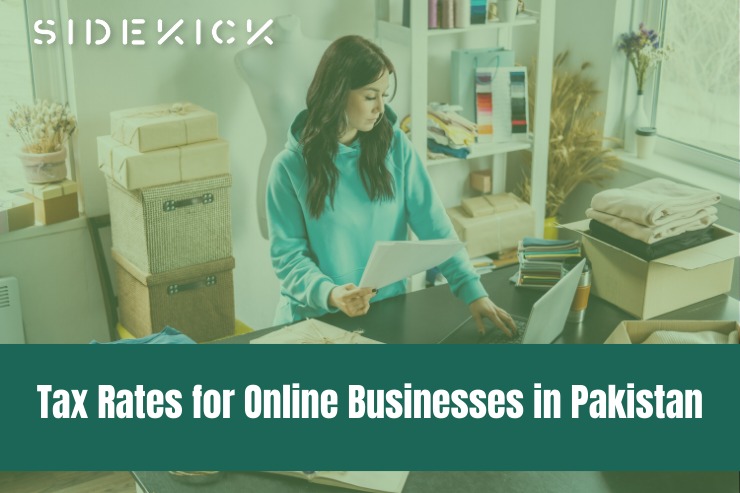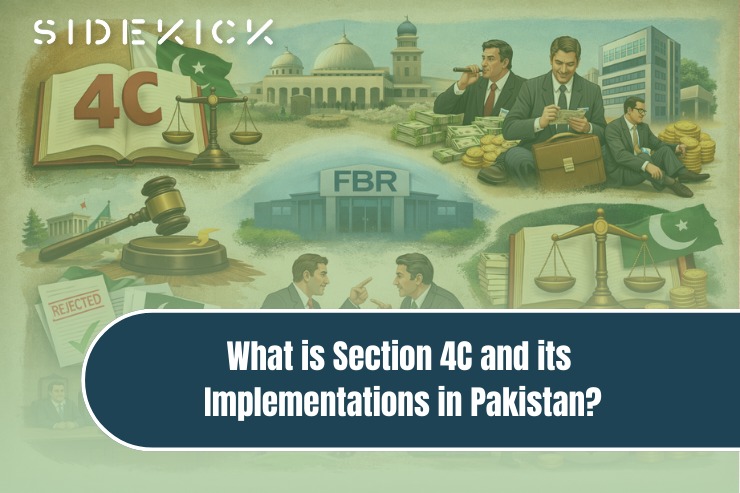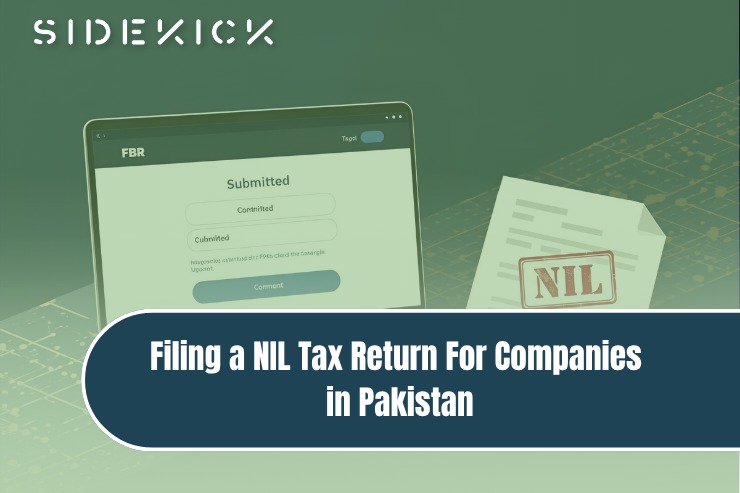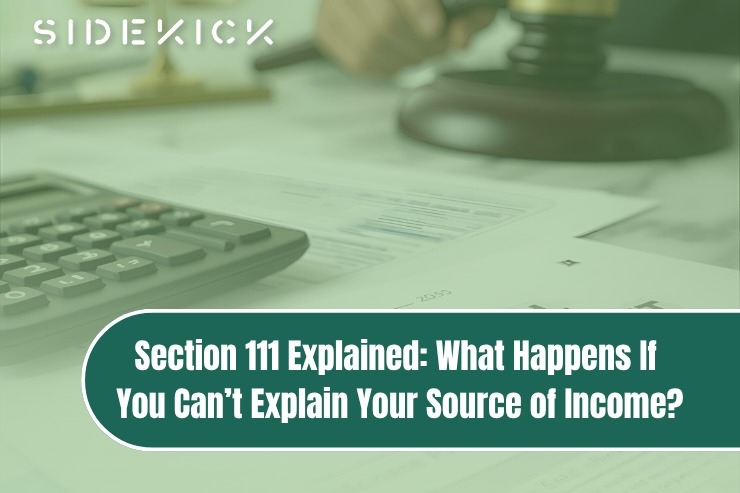The number of businesses in Pakistan continues to rise each year. Every sector consists of old and new businesses. Businesses must be aware of their tax rates to ensure compliance. This article will highlight the various business taxes that apply to different businesses in Pakistan.
Corporate Tax Rate For Businesses in Pakistan
All companies registered under corporate law have to pay corporate tax. The standard corporate tax rate in Pakistan for businesses is 29%. However, some companies are allowed to benefit from reduced tax rates. A lower tax rate applies to small and medium-sized enterprises (SMEs), which is charged at 20%, encouraging growth.
Even online businesses, mainly in the e-commerce and digital services sectors, may be eligible for special tax exemptions. IT companies registered with the Pakistan Software Export Board (PSEB) are tax-exempt from foreign earnings until 2025 to promote IT exports in the country.
Government schemes also exist to reduce tax rates or exemptions for startup and tech-based companies. These schemes were created to promote innovation and support the growth of online businesses in the Pakistani digital economy by lowering the tax burden on developing businesses in these sectors.
Sales Tax and Service Tax Rate For Businesses in Pakistan
Sales tax in Pakistan is charged on the supply of goods and certain services provided. In other countries, the term sales tax may be called “VAT” value-added tax. The standard sales tax rate in Pakistan is 18%. However, reduced rates apply to specific sectors:
- Restaurants and Food Services: Restaurants, cafes, and similar places are subject to a 5% service tax when payments are made with debit or credit cards, mobile wallets, or QR scanning.
- Pharmaceuticals: The reduced rate on the sales tax for pharmaceutical industries is 1%.
The tax slabs mentioned above are for the fiscal year commencing July 1, 2024, and ending June 30, 2025. While local tax professionals like Sidekick are always best, always check with them for your own situation or with official government sources.
Provincial Sales Tax on Services
The sales tax rates vary from province to province, and there are rates and exemptions.
- Sindh: The 13% general rate was increased to 15 percent, effective July 1, 2024. A number of services, such as educational and medical services, have an exemption figure until a certain amount.
- Punjab: The general rate is 16%. Health services and educational services by registered institutions are exempted.
- Khyber Pakhtunkhwa: Its standard rate is 15%. Services such as health care and educational services are exempted.
- Balochistan: There is a standard rate of 15%, with the same health and education services exemptions.
Income Tax for Businesses and Salaried Class
It is essential for businesses and salaried individuals to understand the income tax structures.
Income Tax Slabs for Business Individuals and Associations of Persons (AOPs) for 2024-2025
For business individuals and AOPs, the income tax rates are structured as follows:
| Taxable Income (PKR) | Tax Rate |
| Up to Rs 600,000 | 0% |
| 600,001 – 1,200,000 | 15% of the amount exceeding 600,000 |
| 1,200,001 – 1,600,000 | 90,000 + 20% of the amount exceeding 1,200,000 |
| 1,600,001 – 3,200,000 | 170,000 + 30% of the amount exceeding 1,600,000 |
| 3,200,001 – 5,600,000 | 650,000 + 40% of the amount exceeding 3,200,000 |
| Above 5,600,000 | 1,610,000 + 45% of the amount exceeding 5,600,000 |
Income Tax Slabs for Salaried Individuals for 2024-2025
For salaried individuals, the income tax rates are as follows:
| Taxable Income (PKR) | Tax Rate |
| Up to Rs 600,000 | 0% |
| 600,001 – 1,200,000 | 5% of the amount exceeding 600,000 |
| 1,200,001 – 2,200,000 | 30,000 + 15% of the amount exceeding 1,200,000 |
| 2,200,001 – 3,200,000 | 180,000 + 25% of the amount exceeding 2,200,000 |
| 3,200,001 – 4,100,000 | 430,000 + 30% of the amount exceeding 3,200,000 |
| Above 4,100,000 | 700,000 + 35% of the amount exceeding 4,100,000 |
Not sure what tax rates apply to your business?
Get in Touch
Fill out the form below, and we will be in touch shortly.
Customs Duty Rates
Importing goods into Pakistan from outside is subject to payment of customs duty under such rates as provided in the Customs Act. However, during recent changes, the number of obligations of regulatory duties and the increase of regulatory duties has been set up for more than 600 items imported. In addition, the relative customs duty has been implemented from July 1, 2024, on more than 2,000 items of imported goods.
The regulatory duties on about 657 imported luxury and non-essential items range from 5 % to 55 %. They are categorized under a certain code in the Pakistan Customs Tariff, along with their concessional rates of duty.
- Raw Materials and Industrial Inputs: The government has reduced customs duty on various raw materials and industrial inputs to stimulate domestic manufacturing. Customs Duty on machinery and equipment, for instance, could be lower to facilitate industrial development.
- Consumer Goods: Most consumer goods, especially those that involve luxury, attract higher rates of customs duty to protect the local industry or maintain a proper trade balance.
- Essential Goods: Items deemed essential, such as basic foodstuffs and medical supplies, may have lower or even zero customs duty rates to ensure affordability and accessibility.
Accordingly, the customs tariff is updated from time to time by FBR, and the business should refer to the latest rates to determine the applicable duty rates for particular goods.
Tax Rates for Online Marketplaces
The FBR has applied a certain tax rate to online marketplaces like Daraz. These marketplaces are subject to a 5% tax rate. It is important to note that this rate of 5% is only applicable to online marketplaces.
Other businesses have different tax rates according to their sectors and business models. To prevent penalties by the FBR and run a smooth business, online marketplace operators must follow tax laws accordingly.
Unlock Your Business Potential with Sidekick Consulting!
At Sidekick, we provide professional consulting services prepared to fit the special requirements of all the businesses mentioned above. If you’re a corporate entity, an online marketplace, a freelancer, or a digital entrepreneur, our experienced consultants will help you understand Pakistan’s tax laws and regulations.
Whether you’re complying with corporate tax rates or understanding sales tax, business income tax, etc., we ensure you know what it takes for sustainable growth and success.
Conclusion
Legal compliance and growth in your business require that you understand several tax rates in Pakistan. To avoid penalties, traditional and online businesses must stay on top of tax regulations. Sidekick also helps businesses comply with tax laws by offering services to ease the tax process for businesses.







